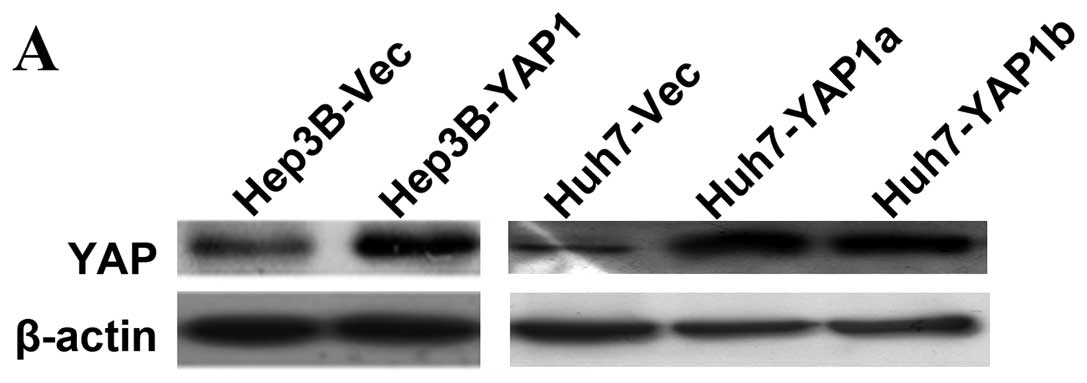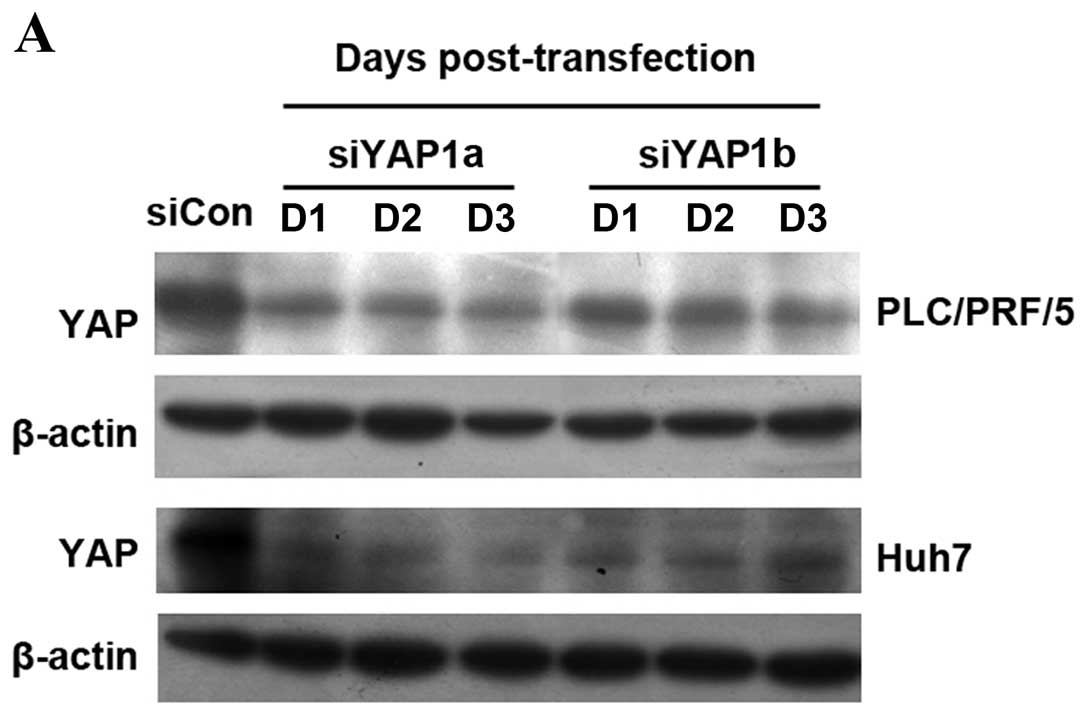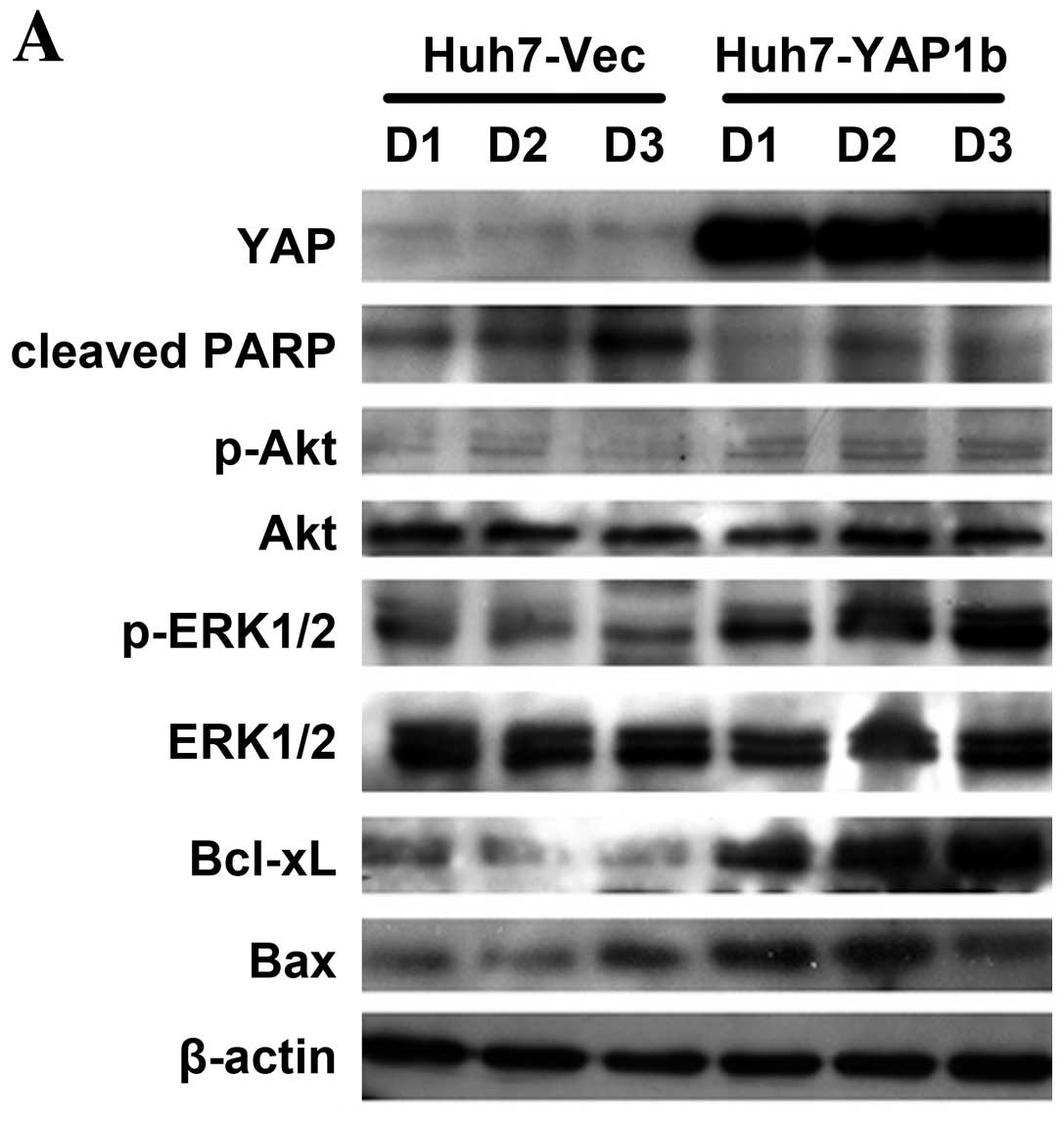|
1
|
Meza-Junco J, Montano-Loza AJ, Liu DM, et
al: Locoregional radiological treatment for hepatocellular
carcinoma; Which, when and how? Cancer Treat Rev. 38:54–62. 2012.
View Article : Google Scholar : PubMed/NCBI
|
|
2
|
Huppert P: Current concepts in
transarterial chemoembolization of hepatocellular carcinoma. Abdom
Imaging. 36:677–683. 2011. View Article : Google Scholar : PubMed/NCBI
|
|
3
|
Llovet JM and Bruix J: Systematic review
of randomized trials for unresectable hepatocellular carcinoma:
Chemoembolization improves survival. Hepatology. 37:429–442. 2003.
View Article : Google Scholar : PubMed/NCBI
|
|
4
|
Asghar U and Meyer T: Are there
opportunities for chemotherapy in the treatment of hepatocellular
cancer? J Hepatol. 56:686–695. 2012. View Article : Google Scholar : PubMed/NCBI
|
|
5
|
Yin M and Zhang L: Hippo signaling: a hub
of growth control, tumor suppression and pluripotency maintenance.
J Genet Genomics. 38:471–481. 2012. View Article : Google Scholar : PubMed/NCBI
|
|
6
|
Chan SW, Lim CJ, Chen L, et al: The Hippo
pathway in biological control and cancer development. J Cell
Physiol. 226:928–939. 2011. View Article : Google Scholar : PubMed/NCBI
|
|
7
|
Zhao B, Li L, Tumaneng K, Wang CY and Guan
KL: A coordinated phosphorylation by Lats and CK1 regulates YAP
stability through SCF(beta-TRCP). Genes Dev. 24:72–85. 2010.
View Article : Google Scholar : PubMed/NCBI
|
|
8
|
Urtasun R, Latasa MU, Demartis MI, et al:
Connective tissue growth factor autocriny in human hepatocellular
carcinoma: oncogenic role and regulation by epidermal growth factor
receptor/yes-associated protein-mediated activation. Hepatology.
54:2149–2158. 2012. View Article : Google Scholar
|
|
9
|
Xu MZ, Chan SW, Liu AM, et al: AXL
receptor kinase is a mediator of YAP-dependent oncogenic functions
in hepatocellular carcinoma. Oncogene. 30:1229–1240. 2011.
View Article : Google Scholar : PubMed/NCBI
|
|
10
|
Zhao B, Wei X, Li W, et al: Inactivation
of YAP oncoprotein by the Hippo pathway is involved in cell contact
inhibition and tissue growth control. Genes Dev. 21:2747–2761.
2007. View Article : Google Scholar : PubMed/NCBI
|
|
11
|
Overholtzer M, Zhang J, Smolen GA, et al:
Transforming properties of YAP, a candidate oncogene on the
chromosome 11q22 amplicon. Proc Natl Acad Sci USA. 103:12405–12410.
2006. View Article : Google Scholar : PubMed/NCBI
|
|
12
|
Wang X, Su L and Ou Q: Yes-associated
protein promotes tumour development in luminal epithelial derived
breast cancer. Eur J Cancer. 48:1227–1234. 2012. View Article : Google Scholar : PubMed/NCBI
|
|
13
|
Dong J, Feldmann G, Huang J, et al:
Elucidation of a universal size-control mechanism in
Drosophila and mammals. Cell. 130:1120–1133. 2007.
View Article : Google Scholar : PubMed/NCBI
|
|
14
|
Zender L, Spector MS, Xue W, et al:
Identification and validation of oncogenes in liver cancer using an
integrative oncogenomic approach. Cell. 125:1253–1267. 2006.
View Article : Google Scholar : PubMed/NCBI
|
|
15
|
Steinhardt AA, Gayyed MF, Klein AP, et al:
Expression of Yes-associated protein in common solid tumors. Hum
Pathol. 39:1582–1589. 2008. View Article : Google Scholar : PubMed/NCBI
|
|
16
|
Xu MZ, Yao TJ, Lee NP, et al:
Yes-associated protein is an independent prognostic marker in
hepatocellular carcinoma. Cancer. 115:4576–4585. 2009. View Article : Google Scholar : PubMed/NCBI
|
|
17
|
Liu LX, Lee NP, Chan VW, et al: Targeting
cadherin-17 inactivates Wnt signaling and inhibits tumor growth in
liver carcinoma. Hepatology. 50:1453–1463. 2009. View Article : Google Scholar : PubMed/NCBI
|
|
18
|
Ikeda M, Okusaka T, Ueno H, et al: Hepatic
arterial infusion chemotherapy with epirubicin in patients with
advanced hepatocellular carcinoma and portal vein tumor thrombosis.
Oncology. 72:188–193. 2007. View Article : Google Scholar : PubMed/NCBI
|
|
19
|
Park SH, Lee Y, Han SH, et al: Systemic
chemotherapy with doxorubicin, cisplatin and capecitabine for
metastatic hepatocellular carcinoma. BMC Cancer. 6:32006.
View Article : Google Scholar : PubMed/NCBI
|
|
20
|
Avila MA, Berasain C, Sangro B and Prieto
J: New therapies for hepatocellular carcinoma. Oncogene.
25:3866–3884. 2006. View Article : Google Scholar : PubMed/NCBI
|
|
21
|
Park JW, Koh YH, Kim HB, et al: Phase II
study of concurrent transarterial chemoembolization and sorafenib
in patients with unresectable hepatocellular carcinoma. J Hepatol.
56:1336–1342. 2012. View Article : Google Scholar : PubMed/NCBI
|
|
22
|
Wang P, Bai Y, Song B, et al:
PP1A-mediated dephosphorylation positively regulates YAP2 activity.
PLoS One. 6:e242882011. View Article : Google Scholar : PubMed/NCBI
|
|
23
|
Huang JM, Nagatomo I, Suzuki E, et al: YAP
modifies cancer cell sensitivity to EGFR and survivin inhibitors
and is negatively regulated by the non-receptor type protein
tyrosine phosphatase 14. Oncogene. Jun 11–2012.(Epub ahead of
print).
|
|
24
|
Fernandez LA, Squatrito M, Northcott P, et
al: Oncogenic YAP promotes radioresistance and genomic instability
in medulloblastoma through IGF2-mediated Akt activation. Oncogene.
31:1923–1937. 2012. View Article : Google Scholar : PubMed/NCBI
|
|
25
|
Bao Y, Nakagawa K, Yang Z, et al: A
cell-based assay to screen stimulators of the Hippo pathway reveals
the inhibitory effect of dobutamine on the YAP-dependent gene
transcription. J Biochem. 150:199–208. 2011. View Article : Google Scholar : PubMed/NCBI
|
|
26
|
Shimizu S, Narita M and Tsujimoto Y: Bcl-2
family proteins regulate the release of apoptogenic cytochrome c by
the mitochondrial channel VDAC. Nature. 399:483–487. 1999.
View Article : Google Scholar : PubMed/NCBI
|
|
27
|
Lee TL, Yeh J, Friedman J, et al: A signal
network involving coactivated NF-kappaB and STAT3 and altered p53
modulates BAX/BCL-XL expression and promotes cell survival of head
and neck squamous cell carcinomas. Int J Cancer. 122:1987–1998.
2008. View Article : Google Scholar : PubMed/NCBI
|
|
28
|
Basu S, Totty NF, Irwin MS, Sudol M and
Downward J: Akt phosphorylates the Yes-associated protein, YAP, to
induce interaction with 14-3-3 and attenuation of p73-mediated
apoptosis. Mol Cell. 11:11–23. 2003. View Article : Google Scholar : PubMed/NCBI
|
|
29
|
Lapi E, Di Agostino S, Donzelli S, et al:
PML, YAP, and p73 are components of a proapoptotic autoregulatory
feedback loop. Mol Cell. 32:803–814. 2008. View Article : Google Scholar : PubMed/NCBI
|
|
30
|
Naci D, El Azreq MA, Chetoui N, et al:
α2β1 integrin promotes chemoresistance against doxorubicin in
cancer cells through extracellular signal-regulated kinase (ERK). J
Biol Chem. 287:17065–17076. 2012.
|
|
31
|
Yang CL, Jiang FQ, Xu F and Jiang GX:
ADAM10 overexpression confers resistance to doxorubicin-induced
apoptosis in hepatocellular carcinoma. Tumour Biol. 33:1535–1541.
2012. View Article : Google Scholar : PubMed/NCBI
|
|
32
|
Jiao M and Nan KJ: Activation of PI3
kinase/Akt/HIF-1α pathway contributes to hypoxia-induced
epithelial-mesenchymal transition and chemoresistance in
hepatocellular carcinoma. Int J Oncol. 40:461–468. 2012.
|
|
33
|
Boucher MJ, Morisset J, Vachon PH, Reed
JC, Laine J and Rivard N: MEK/ERK signaling pathway regulates the
expression of Bcl-2, Bcl-X(L), and Mcl-1 and promotes survival of
human pancreatic cancer cells. J Cell Biochem. 79:355–369. 2000.
View Article : Google Scholar : PubMed/NCBI
|

















